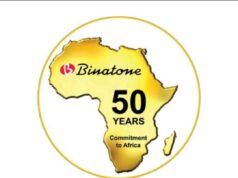The World Bank has withdrawn its financial support for government’s initiative to establish a new national airline.
This follows a review of the pre- feasibility report submitted by the supervising ministry to the Bank for perusal.
The process to establish a new national airline, after the collapse of the state-owned Ghana Airways, started in earnest last year and is being financed using part of a US$30million PPP programme facility from the World Bank.
An initial pre-feasibility report submitted to the World Bank for review and approval – otherwise termed “no objection”- came back with the decision not to continue funding the process, as the model contained in the report seem more commercial than a PPP arrangement.
Chief Director of the Ministry of Transport, Twumasi Ankrah- Selby said “the process is still on-going. We have had discussions with the bank and they had a different position as to where we are with the study, because we have finished with the pre- feasibility and was going on to the feasibility.
“But they felt that following from the pre- feasibility, it was more of a commercial venture than a PPP arrangement. So their thinking at the time was that at this stage the Ministry can go ahead with its commercial arrangement. This is because they try to support PPP arrangements – but the way the study came out and the approach, it is more commercial than on a PPP basis.
“What they are saying is that at the pre-feasibility stage we have identified the path that we should follow. So if we are to go ahead, then we have to finance the arrangement we have. For now they feel that we should go ahead with the commercial arrangement, therefore they will not be able to continue with us,” he said.
Government’s latest attempt to establish a sustainable and profitable airline is the third since independence following the demise of the erstwhile Ghana Airways and Ghana International Airlines, due mainly to mismanagement and abuse of power.
Ghana Airways was founded in 1958, and for decades was the national airline with Kotoka International Airport (KIA) as its hub. However, the airline, ridden with debt, ceased operations in 2004. Attempts were made to revive its fortunes, but to no avail: in June 2005 it was liquidated.
With the support of private investors, Ghana International Airlines (GIA) was established in 2004 after Ghana Airlines’ demise. The airline faced difficulties and eventually suspended its operations in May 2010.
In the proposed new arrangement, government is seeking a carried interest and a partner with experience in running an international carrier.
Questions were however raised by some analysts, who spoke to the B&FT earlier in the year about the feasibility of some key projections in the draft pre- feasibility report cited by the newspaper.
The report, at the time, projected that the new national airline will record an operating profit margin of 10.1 percent in the first year of operation; 10 percent in year two; 7.5 percent in year three; 11.6 percent in the fourth year; and an astounding 13.8 percent in the fifth year.
However, a number of operators in the aviation sector raised serious doubts about the key financial ratios and timelines raised in the report, as they depart from industry standards.
Government is nonetheless optimistic about the success of a new national carrier, given the growing importance and ability of the country to cater for transit passengers and tourist from the sub-region, Europe and the Americas.
“As a government we are going ahead with the- arrangement, because we know the importance of establishing the airline for our objective of establishing KIA as an aviation hub,” Mr. Selby said.
Ghana Airport Company data show a significant growth in transit passengers and cargo throughput for the Kotoka International Airport (KIA) for 2014, pointing to the growing importance of Ghana as an aviation hub in the sub- region.
Transit passengers increased from 162,000 in 2013 to 178,000 in 2014, representing an increase of some 9.5 percent. Cargo throughput also increased by 24.5 percent from 44,000 tonnes in 2013 to 54,000 tonnes in 2014.
The increase in transit passenger throughput has been attributed to the growing presence of regional and international airlines in Ghana and the choice of consumers to use the KIA for on-ward connections to mainly Europe, the Gulf, and Asia due to the good safety record of the country – bar the recent cargo aircraft accidents in recent times.






























